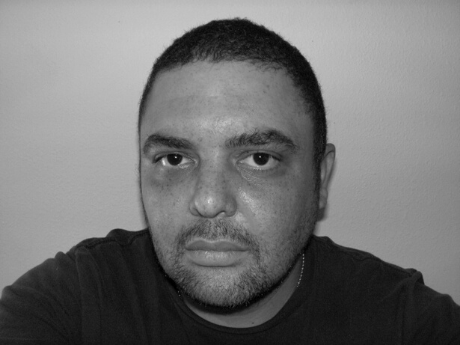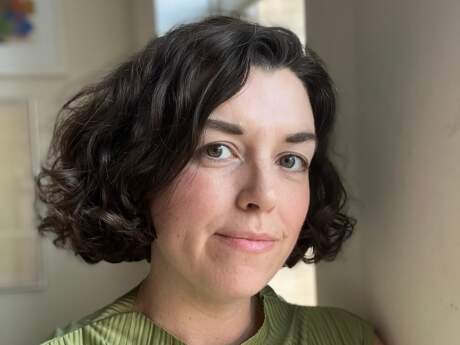In Their Own Words
Shane McCrae’s “Community”

Community
I at the time I didn't know
A grown-up word for one
except I knew some dirty words
I was eleven sometimes waiting for the bus
The bus stop
was the sidewalk was up
on a little hill looked down on the street
Except it was too low to call a hill but there
isn't a special name for dirt that kind of low
And so I call it was a hill
And sometimes these two cops the same they
I think it was the same they
every Sunday they would
drive up under me expose themselves
All the police back then were white
even the bus drivers were white
I knew some
dirty words for one but seeing them they
didn't match the words
I couldn't didn't
never saw their faces saw
their uniforms their hats
the deepest blue I ever seen a
Black man get lost in blue like that a real dark one
I never saw their faces
But I could tell they sometimes they
were laughing from the way their chests shook
like their hearts had gotten loose
This thing it
wasn't in them with white girls
I can't believe it was
If it was white girls too they
how could they have been
the men they were in the community
Introduction by Christopher Soto
Shane McCrae's recent collection of poems Forgiveness Forgiveness sits heavier within the reader as each page turns. McCrae frequently references Little Brown Koko (a racist children's book) in order challenge the flat and singular depictions of American blackness. McCrae writes "I remember it was the only book in the / house that made me feel dirty." The poems in this collection jolt, stammer, make the reader question what is harm and who is worth forgiving.
Shane McCrae on "Community"
The best way I can think of to write about writing, my writing, is to write about "Community," since I had a lot of trouble writing it / since it took me a lot longer to write than most of my poems / since I had never before, and have never since, written another poem in quite the same way. It's adapted from a short memoir written by a woman named Ferdie Walker and published in Remembering Jim Crow: African Americans Tell About Life in the Segregated South, but all the language is my own. Maybe it's more of a translation than an adaptation?
I wrote "Community" while I was working on my second book, Blood, for which I adapted several slave narratives and other, similar things. And here when I say "adapted," I mean that I used the language—or as much of it as possible—as I found it in the original narrative, tweaking it only when necessary in order to make it metrically regular. I set out to write "Community" in the same way as the other poems in Blood, but that very quickly became impossible.
A few lines into the poem, I realized that the voice speaking "Community" was too far from Ferdie Walker's voice for me to use Ferdie Walker's language—not only that, but the voice seemed to be trying to tell the story in a different way. In her memoir, Ferdie Walker had taken a little time getting to what seem to have been the most painful parts of the story; the speaker of the poem started with those details, right in the center of the abuse, the assault. And so I gave up trying to adapt the memoir in the same way I had adapted the narratives. But it took me a long time—about a year—to feel free enough to add the lines that, to my mind, bring the poem together, since nothing like them appeared in Ferdie Walker's memoir:
But I could tell they sometimes they
were laughing from the way their chests shook
like their hearts had gotten loose
While I was working on Blood, I thought a lot about the responsibility I had to the people who had lived the stories I was trying to tell. I tried to be as true to those stories as I could. But occasionally, I sensed, or thought I sensed, something behind the words in the sources that I couldn't convey in a poem by using only the words, and details, I found in the sources. I tried to imagine, when I was writing "Community," what it might have felt like to be that eleven year-old girl and to be assaulted, repeatedly, in the way Ferdie Walker was. And I couldn't think of another way to translate one particular aspect of that feeling except to say that the police officers were laughing as they did what they did. Their hearts had gotten loose—they were mad, but also, in those moments, truly themselves, and Ferdie Walker could see both things. And I believed, and believe, I had the responsibility to say that she could see more than the men who assaulted her would have credited her with seeing.


